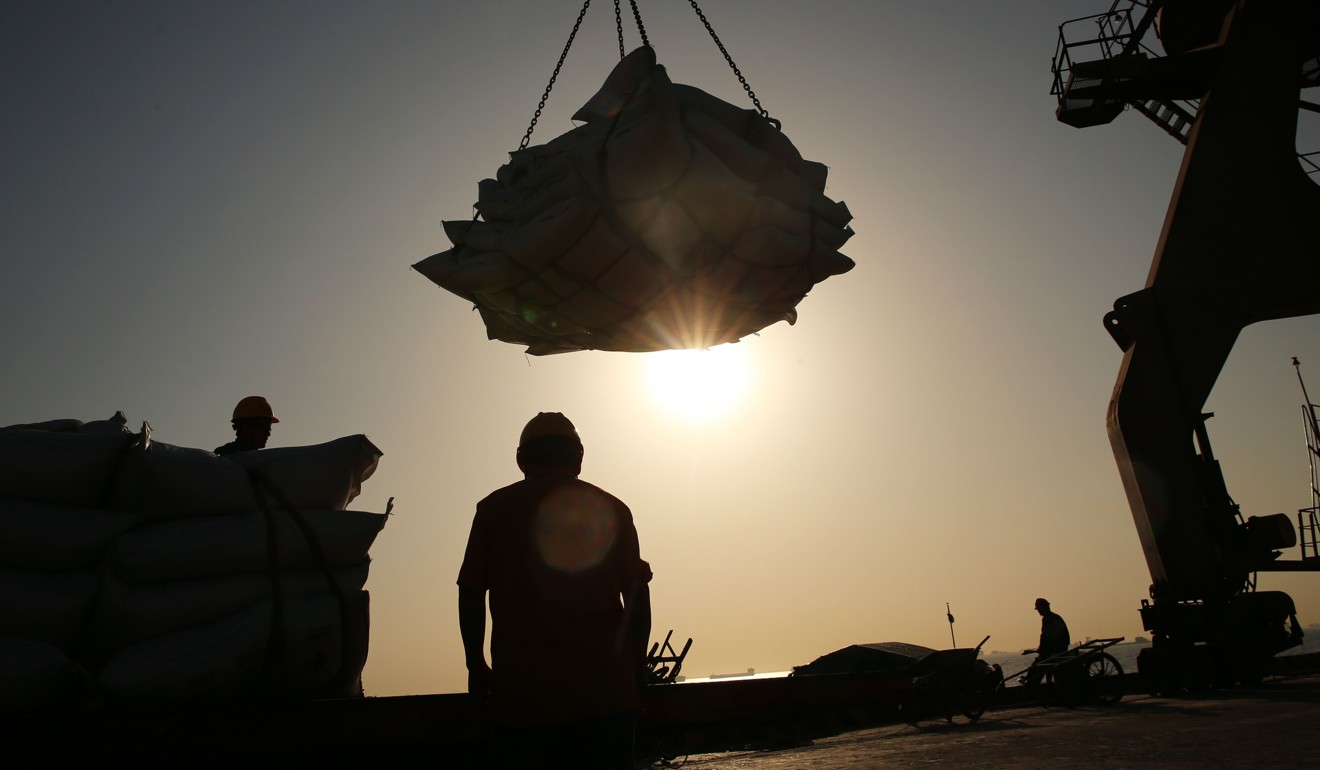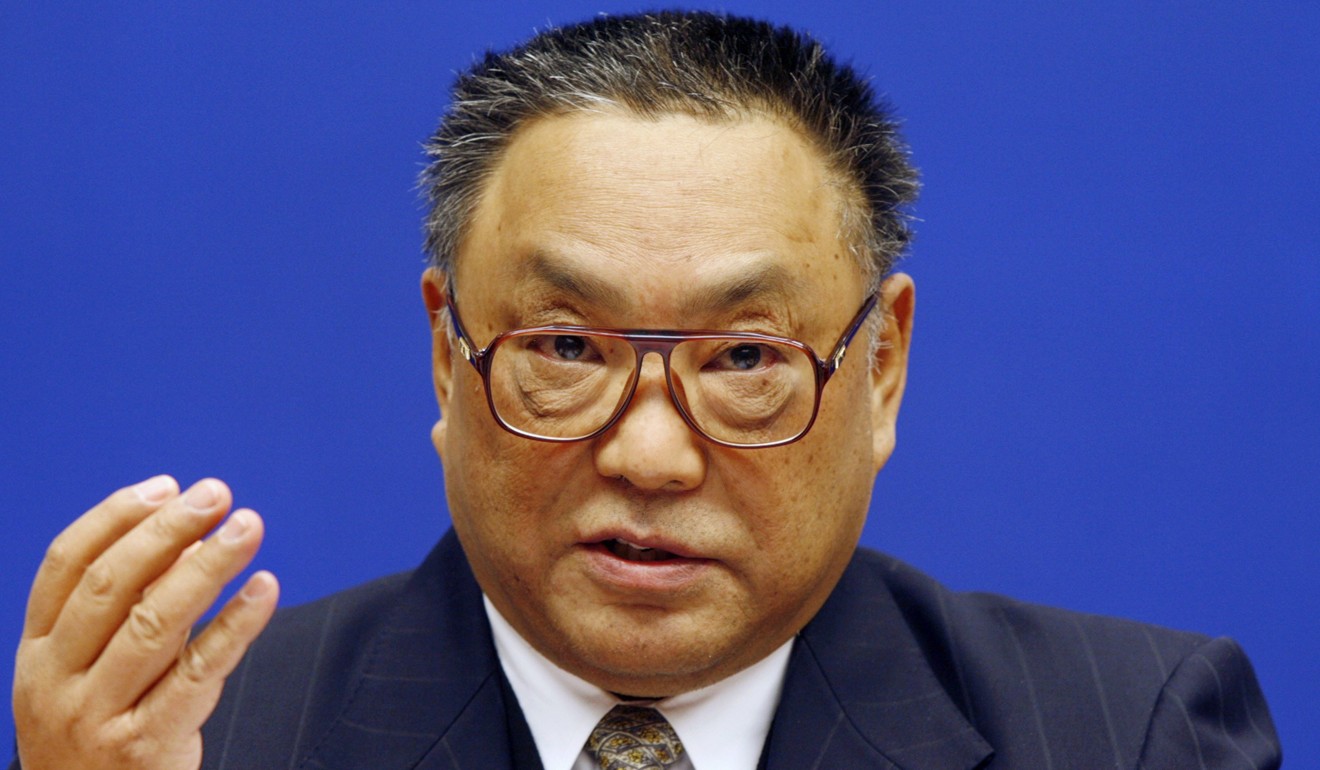
Will China’s private sector be the big loser in the US trade war fight?
- American tariffs are meant to loosen the grip of state firms on the Chinese economy but they could end up having the opposite effect, analysts say
When the United States launched the trade war last year, one of its main aims was to force China to level the playing field in its economy.
Washington wanted Beijing to open up areas restricted to state firms and cut support for state-owned companies, giving greater access to foreign and domestic private competitors.
But analysts say that the US tariff regime could have the opposite of that intended effect by making life much tougher for China’s non-state sector, which has taken the brunt of American duties on Chinese exports to the US.
As recently as last week, when US President Donald Trump effectively banned Chinese technology giant Huawei from the US market and relations between the two countries hit a new low amid renewed tariffs, US Secretary of State Mike Pompeo insisted that Washington was behind a deal that would benefit the Chinese people.
“These issues are not only important to the United States, these are good for the world, and for the people of China,” he said in an interview with CNBC. “If we get this right, this will create a trading system that can create prosperity for citizens around the world.”
Washington has demanded a trade deal that would allow US companies to compete in China on an equal footing with Chinese businesses – measures that would include stronger intellectual property protection, elimination of state subsidies and improved market access.
But as the trade tensions and technology stand-off bite deeper, China’s technology sector and the broader private sector – exemplifying the hard-earned achievements of market reforms in the past 30 years – have suffered a bigger and more direct impact.
“State-owned enterprises are mostly in monopolised sectors like natural resources. The private sector is the main player of trade with the United States,” said Tang Dajie, secretary general of the China Enterprise Institute, a Beijing-based think tank that advocates for the private sector. “The private sector has taken a heavier blow.”
China needs it, the US has it, but why might a trade war energy deal not be the easy win it appears to be?
Tang said of the more than 50 private companies he recently talked to – most of which rely on trade with the US – more than a dozen reported no orders for this year. And many of those companies have put staff on indefinite leave until orders recover.
“We could, of course, wishfully believe that Trump started the trade war for better globalisation and better trade, but the reality is, regardless of the purpose of the war, there have already been casualties,” Tang said. “If the result is the decoupling of the two economies and a lower level of mutual trust, then everyone will lose.”
Trade tensions between the two economies have escalated again in recent weeks, after Trump’s sudden decision to increase tariffs from May 10 on US$200 billion of Chinese goods from 10 per cent to 25 per cent.
Beijing responded with duties on US$60 billion of American products which will take effect on Saturday.

Louis Kuijs, head of Asia research for analysis company Oxford Economics in Hong Kong, said the effects of Trump’s tariffs, complicated by the latest ban on Chinese telecom equipment maker Huawei, frustrated the goal of forcing China to undertake structural reform.
“It is ironic, but so far China’s more outward-oriented tech sector, and, more generally the private sector, has been affected more by the stand-off than the country’s more domestically oriented state-owned companies,” Kuijs said.
The technology stand-off would strengthen the case in China to resist outside calls for reform, he said.
Contradicting statements by his officials, Trump said recently that Huawei could be included in a trade deal between the US and China, adding that there was “probably a good possibility” the two sides would be able to strike an agreement.
Trump doesn’t need a trade deal with China, and markets had better factor in greater risk aversion
After the arrest in Canada of Huawei executive Meng Wanzhou at the US’ request in December, US trade representative and negotiator Robert Lighthizer went on television to say the case against Meng was “a criminal justice matter”, telling CBS that it was “totally separate from anything I work on or anything that trade policy people in the administration work on”.
But Kuijs said the contradiction was “clearly weakening the credibility of the idea that the US government is just trying to push China to undertake structural reform”.
“The technology stand-off is openly about containing China and its hi-tech sectors, rather than structural reform, and has further soured the mood between the two countries, making compromise by China less likely,” he said.

In the meantime, just days after Trump’s tariffs came into effect, China’s state media kicked off a campaign to fire up nationalistic sentiment, something Beijing had kept a lid on for almost a year since the trade war began in July.
State-run television CCTV changed its schedules to screen war films from the Mao Zedong era showing the Chinese army fighting for the North during the Korean war.
Deng Yuwen, a former deputy editor of Study Times, a newspaper published by Beijing’s elite Central Party School, described the past month as a watershed after which domestic calls for reform faced greater restrictions.
“It became clear that [as] Washington wants a technology war now, critics of the [Chinese] government will face a greater chance of being called a traitor,” Deng said. “Bolder market reforms that could have been tolerated might not be any more.”
Deng Xiaoping’s son urges China to ‘know its place’ and not be ‘overbearing’
In a speech in September, two months after the trade war broke out, Deng Pufang – son of late paramount leader Deng Xiaoping – urged China to “know its place” and not be “overbearing”. Other intellectuals have openly urged China to seek common ground with the US and acknowledge the technology development gap between the two countries.
But Washington’s latest moves had led some in China to cast doubt on America’s good intentions, Deng Yuwen said.
“It seems the sort of structural reforms the US wants are not entirely the same as the Chinese people want,” he said. “From the bits and pieces of information, it seemed that even the reformists in China would not agree to some of the demands … so it could be they listed demands that were impossible to meet, just to go ahead with the war.”
That sentiment was not lost on the policy community in the US. Douglas Paal – who was on the National Security Council under presidents Ronald Reagan and George H.W. Bush between 1986 and 1993 – doubted that the talks broke down after Beijing stepped back from changing its trade laws.

The laws in question reportedly involve the transfer of proprietary technologies from US companies doing business in China.
“Who thinks that legislation matters in China? It’s the Communist Party, if they issue a State Council directive, that is as good as you can get,” Paal said at an event held by the National Committee on US-China Relations in New York this month.
“It’s a false issue in my mind and I’m a little bit suspicious that somehow it was introduced to poison the chalice, to make the agreements get rejected.”

